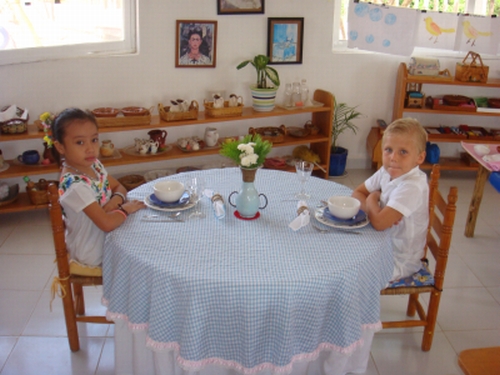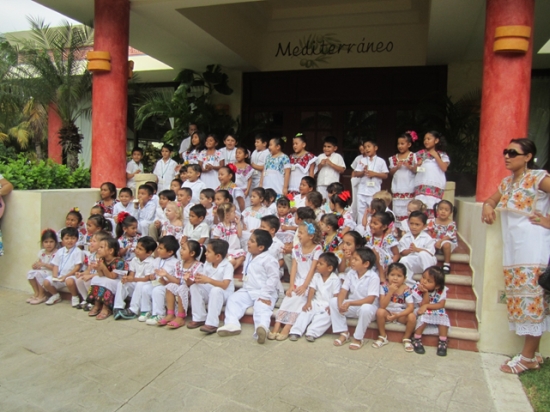English Publications
A decalogue by Maria Montessori
1. Never touch the child unless invited by him (in some form or the other).
2. Never speak ill of the child in his presence or absence.
3. Concentrate on strengthening and helping the development of what is good in the child so that its presence may leave less and less space for evil.
4. Be active in preparing the environment. Take meticulous and constant care of it. Help the child establish constructive relations with it. Show the proper place where the means of development are kept and demonstrate their proper use.
5. Be ever ready to answer the call of the child who stands in need of you and always listen and respond to the child who appeals to you.
6. Respect the child who makes a mistake and can then or later correct himself, but stop firmly and immediately any misuse of the environment and any action which endangers the child, his development or others.
7. Respect the child who takes rest or watches others working or ponders over what he himself has done or will do. Neither call him, nor force him to other forms of activity.
8. Help those who are in search of activity and cannot find it.
9. Be untiring in repeating presentations to the child who refused them earlier, in helping the child acquire what is not yet his own and overcome imperfections. Do this by animating the environment with care, with restraint and silence, with mild words and loving presence. Make your ready presence felt to the child who searches and hide from the child who has found.
10. Always treat the child with the best of good manners and offer him the best you have in yourself and at your disposal.
When grace and courtesy prevail
Montessori philosophy focuses on the education and development of the whole child.
One of the difference ways of teaching in a Montessori classrooms are the daily lessons and practice in Grace and Courtesy toward each other.
Children learn to love each other and to respect their environment by doing it in a natural way. Adults may think these are “rules” for the child is just a style of life. Some lessons in Grace and Courtesy are:
Giving eye contact
One person speaks at a time
Making requests, instead of demands (Would you be willing to…?)
Practice giving and receiving compliments
Saying please and thank you
Holding the door and gate for one another
Waiting turns in line patiently
Asking someone permission before helping, rather than assuming they cannot do it
Coughing into the arm
Introducing self and practicing greetings
Answering the telephone
Frequent hand washing
Working quietly
Maintenance of our classroom and outdoor environment
Picking up litter around school grounds
Stopping the game at recess when someone falls down and offering help up
Loading the school bus back to front and unloading from front to back
How to carry a chair safely and in silence
How to sit properly in the clasroom or anywhere else
The importance of being quiet at the theater during a live performance
Being respectful of nature
Being respectful of ourselves and others
Table manners
How to join in a game
How to include someone in a game
How to follow the rules in a game
How to take turns
Helping someone when they are hurt
Understanding and respecting that different cultures have different traditions and customs
When children understan that being polite, kind, helpful, respectful, and courteous is always in everyone’s best interest and brings happines for everyone.


Comentarios recientes